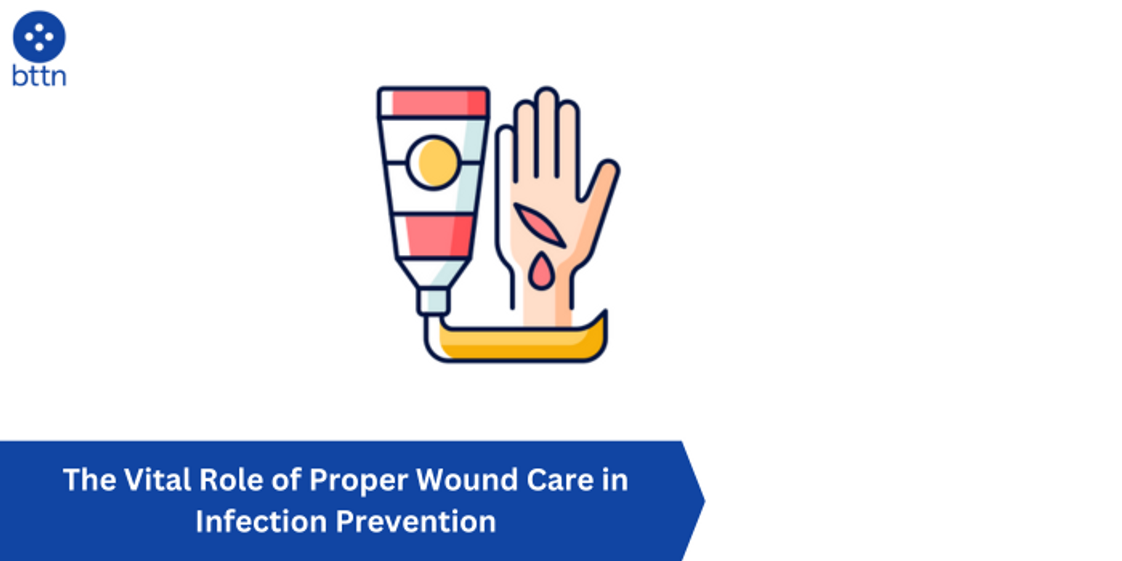
The Vital Role of Proper Wound Care in Infection Prevention
Posted by Pankaj Dhiman on Apr 17th 2024
In the hustle and bustle of our daily lives, it's easy to overlook the importance of properly caring for wounds. Yet, the truth remains: neglecting even minor cuts or scrapes can lead to serious consequences, including infection. In this comprehensive guide, we'll delve into the critical role of proper wound care in preventing infections, offering invaluable insights, tips, and FAQs to keep you informed and protected.
Must Read: Wholesale Medical Supplies Online
Understanding Wound Care: A Primer
Before we dive into the specifics of preventing infections, let's first understand what constitutes proper wound care. Essentially, it involves a series of steps aimed at promoting healing while minimizing the risk of complications such as infection. These steps typically include cleaning the wound, applying medication or dressing, and monitoring for signs of infection.
Must Read: Elastic Bandage: Understanding Its Benefits, Application, and How to Use
The Dangers of Infection
Infections are not to be taken lightly, especially when they stem from untreated wounds. Bacteria, viruses, and other pathogens can easily infiltrate an open wound, leading to localized or systemic infections. Common symptoms of wound infections include redness, swelling, warmth, pain, and discharge. In severe cases, infections can spread rapidly, causing tissue damage, sepsis, or even death.
Must Read: Buy IV Infusion Set Online at Best Price
Why Proper Wound Care Matters
Proper wound care is your first line of defense against infections. By promptly cleaning and dressing wounds, you create a barrier that prevents pathogens from entering the body. Additionally, keeping wounds clean and moist promotes faster healing, reducing the risk of complications. Investing time and effort in proper wound care today can save you from a world of pain and suffering tomorrow.
Must Read: Best Selling Bouffant Caps in the US 2024
Essential Tips for Effective Wound Care
Now that we understand the importance of proper wound care, let's explore some essential tips to help you safeguard against infections:
- Cleanse Thoroughly: Begin by gently washing the wound with mild soap and water to remove dirt, debris, and bacteria. Avoid using harsh antiseptics, as they can irritate the skin and delay healing.
- Apply Antiseptic: After cleaning, apply an antiseptic solution such as hydrogen peroxide or rubbing alcohol to disinfect the wound. Be sure to use a clean cotton ball or swab to minimize the risk of contamination.
- Dress Appropriately: Choose an appropriate dressing based on the type and severity of the wound. For minor cuts and scrapes, a simple adhesive bandage may suffice, while larger or deeper wounds may require sterile gauze pads and medical tape.
- Monitor for Signs of Infection: Keep a close eye on the wound as it heals, watching for any signs of infection such as increased redness, swelling, or pus. If you notice any worrisome symptoms, seek medical attention promptly.
- Promote Healing: Support the healing process by keeping the wound clean, moist, and protected. Avoid picking at scabs or irritating the area, as this can impede healing and increase the risk of infection.
Must Read: Wholesale Medical Supply: Vital Solutions for Healthcare Needs
FAQs About Wound Care and Infection Prevention
- How often should I change the dressing on my wound?
- The frequency of dressing changes depends on the type and severity of the wound. In general, minor wounds may only require dressing changes every 1-2 days, while larger or more complex wounds may need daily or even more frequent changes.
- Is it normal for a wound to ooze fluid?
- Some degree of fluid drainage is normal during the early stages of wound healing. However, excessive or discolored drainage may indicate infection and should be evaluated by a healthcare professional.
- Can I shower with an open wound?
- It's generally safe to shower with an open wound, but be sure to keep the area clean and dry afterward. Avoid soaking the wound in water for prolonged periods, as this can soften the surrounding skin and increase the risk of infection.
- When should I seek medical attention for a wound?
- You should seek medical attention for a wound if it is deep, large, or shows signs of infection such as increased redness, swelling, or pus. Additionally, seek prompt medical care for wounds that are caused by animal bites, puncture injuries, or contaminated objects.
Shop Now - Wholesale Medical Supplies Online
The Bottom Line
Proper wound care is not just a matter of hygiene—it's a critical aspect of maintaining your health and well-being. By following the guidelines outlined in this article and staying vigilant for signs of infection, you can effectively prevent complications and promote faster healing. Remember, when it comes to wounds, an ounce of prevention is worth a pound of cure.
